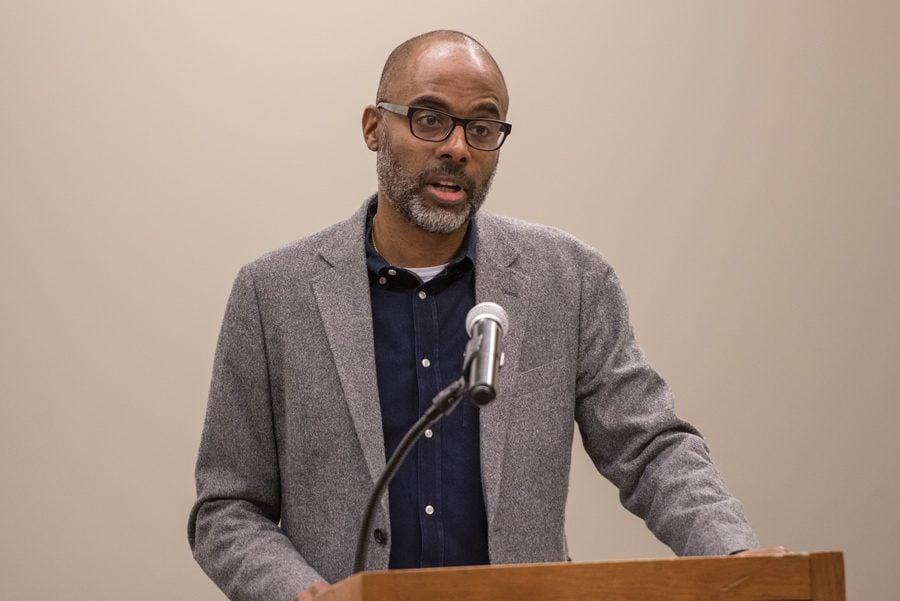Northwestern history professor emphasizes influence of black people in electing John F. Kennedy
David Lee/Daily Senior Staffer
Brett Gadsden speaks at an event at Evanston Public Library. Gadsden explained the influence of black voters in electing John F. Kennedy in 1960.
February 28, 2019
While the story of John F. Kennedy’s victory in the 1960 presidential election often emphasizes his charisma, his elevated family background and his commitment to fostering a new era, Northwestern history professor Brett Gadsden took a different approach to the 1960 election: crediting the influence of black voters.
At the Evanston Public Library on Wednesday, Gadsden presented a condensed version of the first chapter of his upcoming book, “From Protest to Politics,” which examines the role of black people in the 1960 campaign and election of Kennedy. Although their influence is not popularized in history textbooks, black people helped elevate Kennedy’s campaign, Gadsden said.
Kennedy’s black campaign advisers — Louis E. Martin, Frank D. Reeves and Marjorie Lawson — tried to swing opinion in support of Kennedy, at a time when many black voters had reservations about Kennedy’s stance on liberalism and civil rights, Gadsden said. They worked to tap into voter registration and get the support of black newspapers and prominent black figures, including Martin Luther King Jr., he said.
“It’s difficult to imagine Kennedy’s victory but for his strong showing among African-American voters,” Gadsden said.
Before 1960, a considerable percentage of black voters went Republican, but in 1960, they voted Democrat by 70-30, Gadsden said. Kennedy won certain states — including Maryland, Illinois and Michigan — because of black votes.
Researching Kennedy’s black campaign advisers uncovers a “new and exciting interpretation” of the 1960 presidential election, Gadsden said.
“In Lawson, Reeves, Martin and others, we see the importance of figures who have been systematically overlooked in the presidential histories,” Gadsden said. “But their work mattered and influenced the outcome of this dramatic chapter in our collective past.”
Megan Skord, who attended the event, was particularly intrigued by how Kennedy’s compassionate call to Coretta Scott King following the arrest of her husband shifted public support for Kennedy.
“It seems like a very small event, or something that only took a very short amount of time, that created a huge shift in our politics,” Skord said.
During the 1960 presidential election, attendee Charlene Shaw (Weinberg ‘70) lived in Skokie, Illinois and said she did not know about the history of black people in Kennedy’s campaign.
“Living in an all-white community, it didn’t occur to me,” Shaw said.
At the time, Shaw’s knowledge and perception of the 1960 election was filtered “through the eyes” of television and news media. She said she mostly remembers the presidential debates and Kennedy’s subsequent victory.
Gadsden emphasized the revolutionary nature of the 1960 campaign.
He said looking at Kennedy’s election reminds us of the choices candidates make between “crafting moderate appeals to the existing base” and “recognizing shifting political winds.” When faced with this decision, Gadsden said Kennedy’s black campaign staffers chose the latter to set the country on a more promising path.
“They might serve as models for us today,” Gadsden said.
Email: [email protected]
Twitter: @cassidyw_


